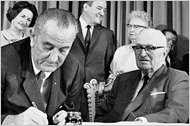Giving up on the goals of law school because they are challenging is not a solution.
« Back to Discussion
The Case Against Law School
Should the standard three years of law school, followed by the bar exam, be the only path to a legal career?
Learning to Think Like a Lawyer
Updated July 21, 2011, 08:23 PM
Geoffrey R. Stone, a distinguished service professor at the University of Chicago Law School, was the school's dean from 1987 to 1993 and was the provost of the university from 1993 to 2002.
There is nothing inevitable about the three-year program of legal study, any more than there is about the four-year presidency or the seven-game World Series. These are artificial constructs, but with time and experience we can decide whether they work well.
Does the three-year program of legal education work well? This depends entirely on what legal educators do with the three years. If legal educators are lazy, uninspired or indifferent to their responsibility to educate, three years is certainly too long. But if they are thoughtful, focused and creative, three years may not be long enough.
The critical question is what law schools can do to educate future lawyers that legal practice cannot do. There are several experiences legal education can offer that are invaluable for future lawyers.
First, and most important, it can teach students to “think like a lawyer.” As any lawyer will tell you, this is critical. The practice of law demands a rigorous, self-critical (and critical), creative and empathic (how will my opponent and the judge see this issue?) mind-set. In general, legal education does this brilliantly. This is at the very core of a legal education.
Second, legal education exposes would-be lawyers to a wide range of legal subjects -- procedure, contracts, torts, criminal law, evidence, constitutional law, corporate law, property law, administrative law, jurisdiction, labor law, commercial law and on and on and on. This, too, is essential for the intelligent practice of law.
Third, legal education presents future lawyers, judges and public officials with a broad array of perspectives that will enhance their work, ranging from economics to legal philosophy to an understanding of empirical and social science data.
Fourth, legal education offers students a supervised, rigorous and disciplined opportunity to learn practical legal skills though clinics, externships and trial practice and negotiation courses taught by individuals who are committed to teaching. This is a far superior way for young lawyers to gain these skills than by doing scut work for attorneys who are often too busy to teach them.
Finally, legal education provides students with opportunities to work on journals, in moot court competitions and in a broad range of law school organizations that are designed to enrich the education of future lawyers in terms of their writing, their advocacy skills and their exposure to diverse political, legal and cultural perspectives.
A law school that can do all this in two years would have my blessing. But it is not possible. A law school that does not do all this in three years should be held accountable for its failure. But giving up on these goals because they are challenging is not a solution. Lawyers play a central role in our society, and we have a responsibility to educate them well before unleashing them on our citizens.




 David Van Zandt, president, The New School
David Van Zandt, president, The New School
 George Leef, Pope Center for Higher Education Policy
George Leef, Pope Center for Higher Education Policy
 Kevin Noble Maillard, law professor, Syracuse University
Kevin Noble Maillard, law professor, Syracuse University
 Rose Cuison Villazor, Hofstra University Law School
Rose Cuison Villazor, Hofstra University Law School
 Geoffrey R. Stone, University of Chicago Law School
Geoffrey R. Stone, University of Chicago Law School
 Bryan A. Garner, editor in chief, “Black’s Law Dictionary"
Bryan A. Garner, editor in chief, “Black’s Law Dictionary"

 Presidents and Their Debts, F.D.R. to Bush
Presidents and Their Debts, F.D.R. to Bush
 Can World Soccer Root Out Corruption?
Can World Soccer Root Out Corruption?
 What Will the Debt Debate Mean for 2012?
What Will the Debt Debate Mean for 2012?
 The Texas Jobs Juggernaut
The Texas Jobs Juggernaut
 Women's Choices: School vs. Children
Women's Choices: School vs. Children
17 Readers' Comments
Post a comment »The question is, if all of these things are learned in law school, why do so many practicing lawyers, and many others, including commenter Mr Leef, think that:
"The truth is that very little that a lawyer needs to know is learned in law school classrooms and that which is essential, particularly legal research and writing, could easily be learned elsewhere."
It would be interesting to see an analysis of this issue. A law school degree is in the odd position of being a most expensive but somehow useless thing that thousands of very intelligent people compete extremely fiercely for.
And many of the graduates dismiss their educational experience, yet sniff about to see who went to the better law school. And many clients do the same dismissive but ranking-concerned dance as well.
What accounts for this selective amnesia?
You are right that lawyers play a central role in our society and we should educate them before allowing them to practice law, but we also should not saddle them with outrageous amounts of debt before allowing them to practice law. The slight benefits of 3L year are vastly outweighed by its cost of $50,000 - a little bit more than $100 per hour of class time.
I also disagree with your "think like a lawyer" argument. I can teach anybody, anywhere to think like a lawyer with this simple sentence: There are reasonable arguments on both sides of nearly every issue, no matter how clear cut the answer may seem. It should not take three years to teach this way of thinking to already intelligent law students.
When pressed, most law professors say that this sort of thinking skill can't be taught directly. But philosophers have been explicitly teaching logic and critical thinking skills for thousands of years. "Thinking like a lawyer" lies within that larger field and includes things like arguing from analogy. I seriously doubt, however, that most law professors understand this. They seem to think it is a somewhat different way of thinking altogether. To make matters worse, when asked, an alarming number of law professors cannot even articulate precisely what it means to think like a lawyer. If you can't articulate it, how can you teach it?
But what the author fails to grapple with is the possibility that maybe academics aren't an integral ingredient in whatever concoction teaches us how to "think like a lawyer". I've learned more about the intricacies of trying a case, preparing materials for a trial, and being an effective advocate for your client while driving around with a country lawyer than I ever did sitting in a classroom at a top school. Instead of even acknowledging that this is a possibility, the author just dismisses it. I want him to be aware that sometimes those attorneys do more than just give you scut work; they're just as invested as those steeped in academia in your success - and bolstered by the real world experience some of those academics lack.
www.runningwithstilettos.com
The problem with this discussion is that there's no one who will suggest that what we need is far less lawyers. People who are human rather than $300 and up per hour money machines. One of America's particular and peculiar problems is the number of lawyers and lawsuits. There is hardly an incident when some creep with a law degree doesn't rush forth with a class action. "Ambulance chasers" used to be a dirty word, now it's an accepted path to getting rich. The same has happened in the once respected and respectable world of politics. It was perhaps in the '70s or '80s that the idea spread like swamp water that a law degree was usable for everything but law. It became leverage. And immediately the quamlity of lawyers went down and their remuneration went up.
What's really needed is a discussion by those capable of actually changing something on how we can reduce, not increase or improve our lawyers and their role in a civilized society.
If there are to be fewer jobs, and the job market is abysmal for lawyers right now - more so than other industries - why talk about a 2 year vs. 3 year program? So many here seem to be skirting the issue, but I'm pleased that this author at least recognizes that it's not the number of years, but the experience and ability to think that one gets in a 'good' law school.
Let's get rid of the lousy schools versus diluting the education.
Stone praises clinical oppunities at the university but claims new practioners will be under educated and over worked by their employers. In reality, clincial work should mirror practicing. It may be true University of Chicago grads may learn more in a clinic than in the posh factory like firms they go on to work for in exchange for generous salaries. But that is a choice. Most law grads will go onto work in small to medium firms or in government where real mentoring which outweighs law school by a million to one is still practiced. Law grads would be able to see out better training after law school if it cost less and there was less pressure to get big firm jobs where more often than not real experience is hard to come by.
On the one hand, students can take additional classes and learn about different areas on the law in a third year. On the other hand, students have so little practical experience that few know what area of law they will eventually seek out, so much of the class work is unfocused and does not .
On the one hand, students can participate in moot courts or journals. On the other hand, law journals mostly publish polemical articles, such that eliminating 75% of them wouldn't impact society too negatively. Those that remain could be run by post-law school fellows. Those who move on in two years will obtain plenty of experience reading and writing on the job.
Clinical legal education has a nice appeal, and I'm sure is beneficial in practice quite often. I can imagine, however, that an unpaid internship with a practicing lawyer could be just as beneficial. Junior lawyers can be well paid but shouldn't expect mentorship or training. I suspect there would be a place in the legal world for a class of "clerks" who work for little or nothing in exchange for real training and practical experience.
So why does the third year of law school continue? $$$$$
This is a tired cliche and a poor place to begin an argument. I've encountered a great many lawyers, and I'm pleased to report that they do not share a single mode of thinking. An intelligent lawyer can think in a dozen different ways. A bad lawyer is lucky to think at all. But I've seen nothing to suggest that any lawyer's thinking has been seriously improved by his or her time in law school. It's largely garbage in, garbage out.
"Second, legal education exposes would-be lawyers to a wide range of legal subjects"
Yes, but even at good schools like the University of Chicago, the depth of coverage of any of these topics is lackluster. For example, at Yale, they teach "tax law" without reference to the tax code--an intellectually dubious exercise at best.
"Third, legal education presents future lawyers, judges and public officials with a broad array of perspectives that will enhance their work"
Here I can do no better than Justice Roberts's recent comments on the utility of legal scholarship. http://www.acslaw.org/acsblog/law-prof-ifill-challenges-chief-justice-ro...
"Fourth, legal education offers students a supervised, rigorous and disciplined opportunity to learn practical legal skills though clinics, externships and trial practice and negotiation courses taught by individuals who are committed to teaching."
Perhaps. You'll note that these programs are rarely run by law professors.
"Finally, legal education provides students with opportunities to work on journals, in moot court competitions..."
Thank goodness! If not for law journals, we might actually have peer review!
"A law school that can do all this in two years would have my blessing. But it is not possible. A law school that does not do all this in three years should be held accountable for its failure."
A wonderful thought. But no law school has ever been held accountable for its failure.
Log In to Post a Comment